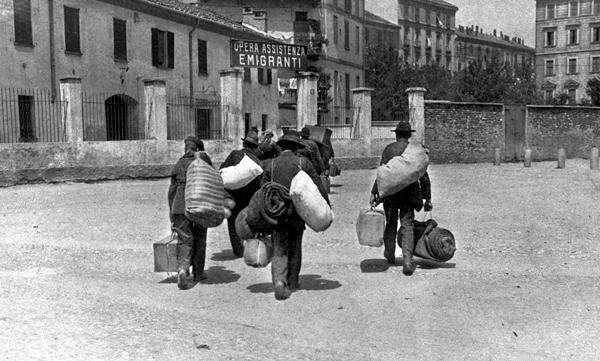We receive many enquiries from people asking advice about tracing their roots back to Italy. While we do not provide a specific genealogy service, our attempts to help people over the years have given us enough experience to list the basics “dos” or “don’ts”.
If your family surname is also the name of a town, it does not automatically mean that you come from that place. So it is better not to focus your search only on that town. For example, if your name is Padova or Di Napoli, it does not mean that your family are from Padova or Napoli.
If you cannot find the town your family came from on a map or over the Internet, chances are that the spelling of the name is not correct. Try to find some written documentation or ask your relatives to help clarify. If even this does not help, it is possible that the name was originally misspelled by the immigration office; in this case, the best option is to write to someone in Italy, like ourselves, and ask what real town name sounds similar to the one you have. For example, someone wrote to us asking about a town that could not be found on any map, “Gala de fimia”, we immediately suggested that this could only be Calatafimi and, indeed, it was.
If you know the name of the town, it is worth doing some research on the town itself to find out the number of inhabitants and try to understand how many people share your surname.
 The paginebianche.it website has the full directory of Italian cities and towns. Put the surname in the “Cognome” (surname) field and the name of the town in the “Dove” (where) one and find out how many people have your surname. If the list is manageable you can try to contact them directly to ask whether there might be a chance of you being relatives. People tend to be kind in these situations, so you can give it a go.
The paginebianche.it website has the full directory of Italian cities and towns. Put the surname in the “Cognome” (surname) field and the name of the town in the “Dove” (where) one and find out how many people have your surname. If the list is manageable you can try to contact them directly to ask whether there might be a chance of you being relatives. People tend to be kind in these situations, so you can give it a go.
The local authorities of a town could also be of help. Look for the website of the town and try to get in touch with the “Ufficio Anagrafe”. Usually it is enough to enter “Comune di” plus the name of the town in a search engine.
 Obviously, social networks play a great role these days. Looking for the official page of a town hall on Facebook and posting a message on the wall or getting in touch with people with your surname who live in the area your family was originally from, can bring more results than you expected. Twitter is also of great help, although it is not as popular as FB in Italy as yet.
Obviously, social networks play a great role these days. Looking for the official page of a town hall on Facebook and posting a message on the wall or getting in touch with people with your surname who live in the area your family was originally from, can bring more results than you expected. Twitter is also of great help, although it is not as popular as FB in Italy as yet.
A good source of information can also be the many online databases that hold genealogical information; the Ellis Island immigration database and the Family History Library are two good examples.
If you do not manage to find out if you have relatives in Italy or you are not that keen in searching for them, the only final suggestion we can give is to come and visit Italy anyway. Over the years, we have been in touch with several people of Italian origin who came to Italy for the first time and they all had a wonderful emotional experience.













